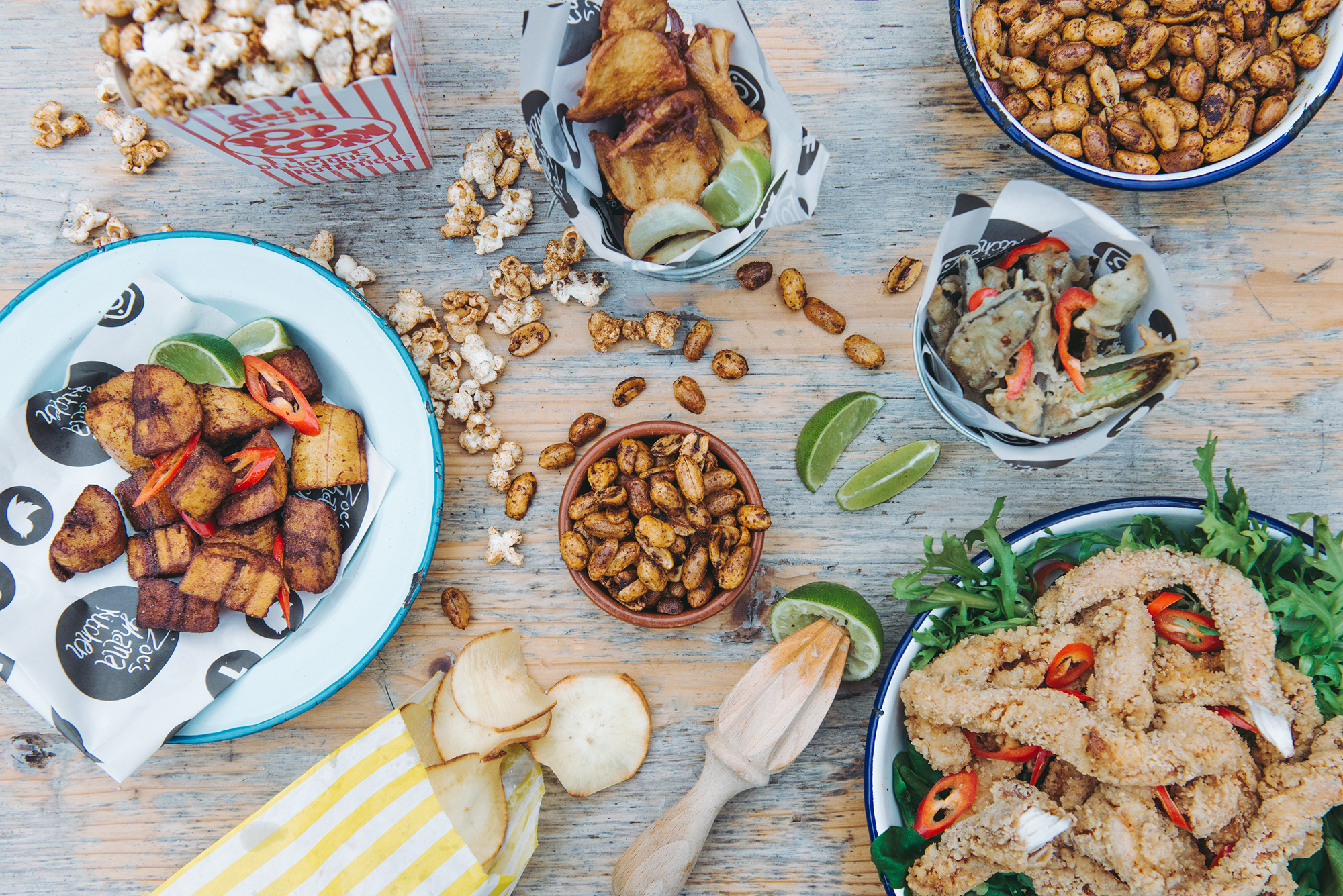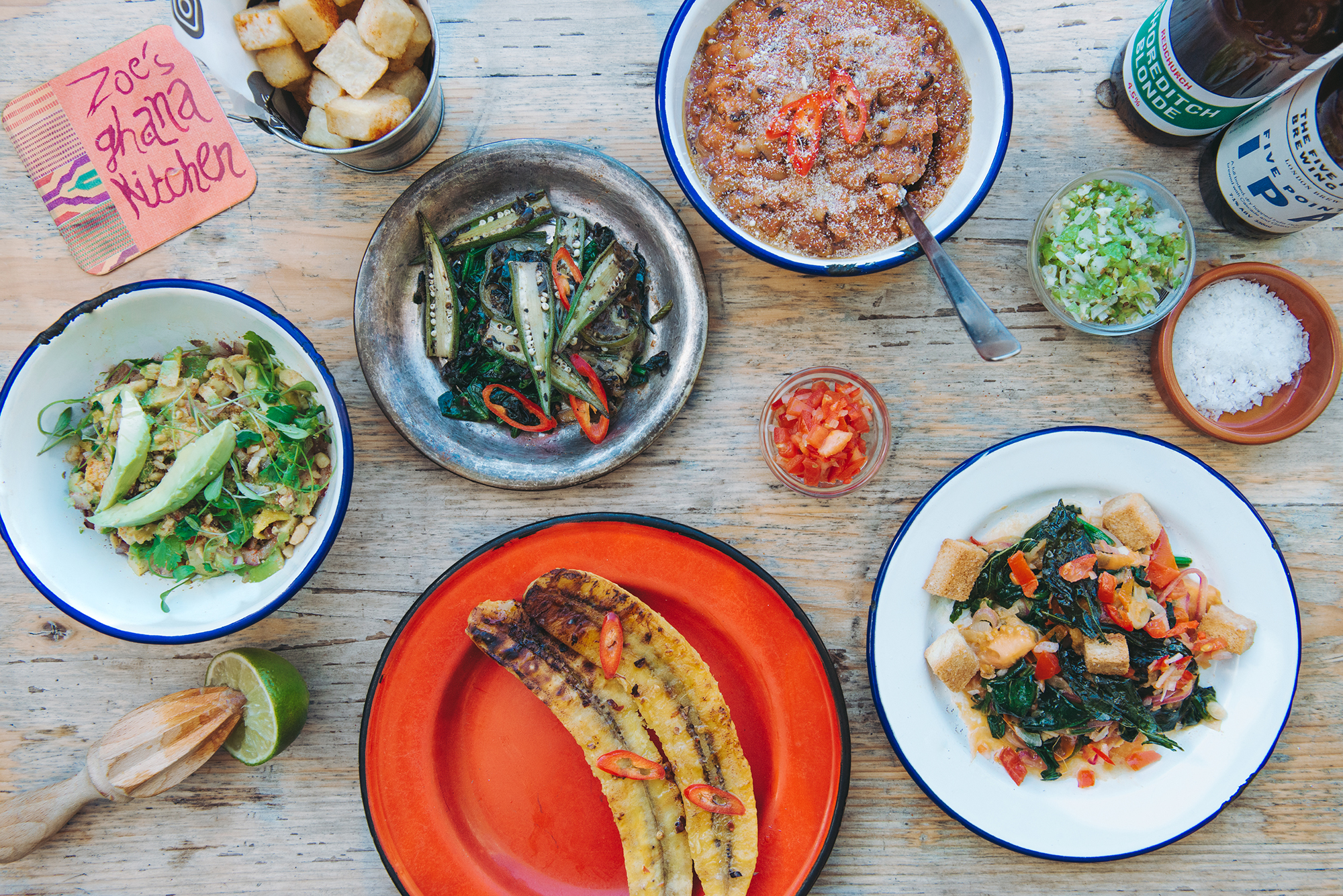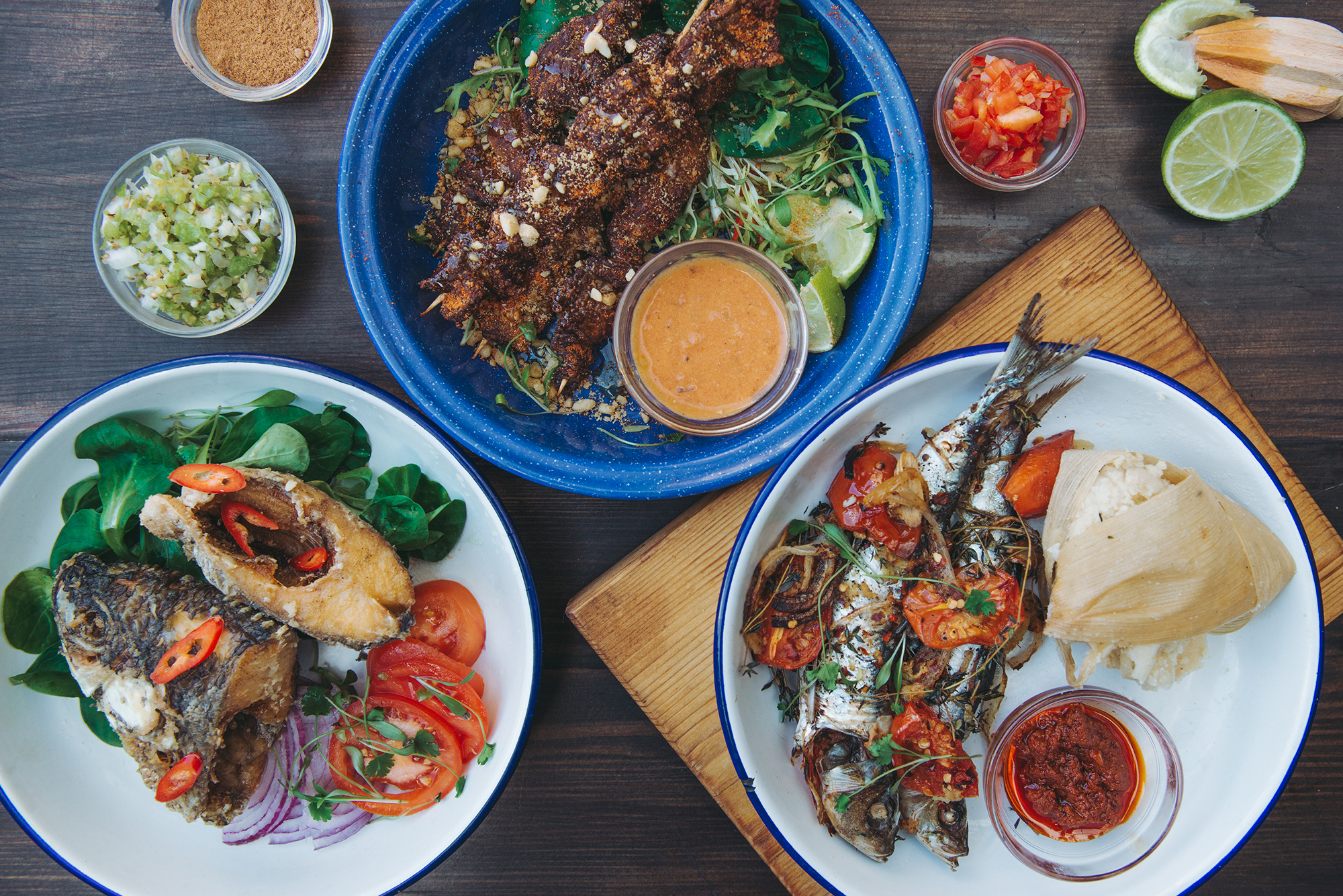My life in food: Zoe Adjonyoh

We spoke to the cookbook author and chef-owner of London’s Zoe’s Ghana Kitchen about her comfort food peanut butter stew, Ghanaian ingredients and her top cooking advice.
Chef and author Zoe Adjonyoh started cooking peanut butter stew out of her east London home in 2010 for festival-goers. She now has her own restaurant, Zoe’s Ghana Kitchen, and has written a cookbook of the same name. Adjonyoh tells us about what she cooks at home, her childhood food memories and how she’s re-mixing traditional Ghanaian dishes for the modern kitchen.
Zoe’s Ghana Kitchen is just one of those things that turned into something
Every year in east London, Hackney Wick Arts Festival takes places where there are a lot of open studios and thousands of people pour in. One year, because there were so many people coming, I thought I’d cook.
I made a big pot of peanut butter stew, fried some plantain and made a sign saying ‘Zoe’s peanut butter stew’. It has a very distinguishable peanut butter, spicy, piquant smell and it drew people in. Before we knew it, we had a party all weekend with people eating this food that I grew up with. People wanted me to cook it again so the following year, I turned my flat into a restaurant space.
People wanted to know when they could come back so I took some email addresses and it became popular very quickly. It all went from there.
 Camille Mack/Zoe's Ghana Kitchen
Camille Mack/Zoe's Ghana Kitchen
When my dad was around he’d cook Ghanaian food
My mum was Irish so we had a very English diet like chips and meat and two veg. But sometimes my dad would cook and he’d bring home those blue plastic bags that you can’t really see through properly. They were filled with mysterious contents like kenkey [a fermented dumpling], shito or tilapia – all these interesting ingredients.
I used to watch him cook and then eat with him. When I was around 10 years-old, I started cooking what I’d seen him cooking and learning more about the food. I realised that in the same way that mum would cook cabbage and bacon that reminded her of Ireland, he’d cook this food which would take him home. I started having this love affair with Ghana through food.
Peanut butter stew is my favourite childhood comfort dish
You know when you eat something and it feels like you’re getting wrapped in a blanket or being hugged? It was such a warming, wholesome food. It was why I cooked it at Hackney Wick. I knew everyone would love it.
I always make it with slow-cooked lamb on the bone. You make a broth with onions, tomatoes, a bit of chilli and fresh ginger. It’s a really simple, spicy broth and then you add a ton of peanut butter and just melt it in. It’s a one-pot dish that you cook out for three hours really slowly.

Camille Mack/Zoe's Ghana Kitchen
Onions, tomatoes and ginger are the key ingredients in Ghanaian cooking
Red red is a common dish – it’s a vegan bean stew but you can add meat. You can eat it for breakfast, lunch or dinner. There’s kelewele which is a style of plantain with savoury and sweet flavours. The plantain is quite ripe so it caramelises well and is spiced with ground cloves, cinnamon, cayenne pepper and ginger.
Staples in Ghana depend on what region you’re in. In Accra, you get a lot of tilapia and other smoked fish. Further north, you get more fermented foods like kenkey and sustenance foods like goat.
When I started cooking, I was making very traditional dishes
Over time, as part of my own investigation and exploration, as I’ve been introduced to more ingredients and dishes, I’ve realised that traditional dishes are great but what else can we do with these ingredients? It’s about having the same ingredients on a plate but re-mixing them.
For example, you’d usually cook a big mound of banku [a giant dumpling made from corn dough and cassava dough] and it’s very slippery in texture. People respond to texture differently. I decided to slice it into smaller portions and then fry it to change the texture. You still get that fermented flavour which goes really well with fish but the texture and presentation is different.

Camille Mack/Zoe's Ghana Kitchen
People are more conscious of West African food
People have a greater understanding of what the food is and I think it’s getting to the place where it can be distinguished from other foods from across Africa. In London, for a long time there were only a few key dates in the calendar when people could experience the food. Now you see street food businesses incorporated into London street food markets like Kerb and Street Feast and there are more restaurants opening. It goes to show how far we’ve come in five or six years.
These new openings are doing what Zoe’s Ghana Kitchen has been doing: re-spinning, re-imagining and re-inventing what the food is.
Five final questions
Favourite snack: I love crackers. I’m a big fan of mature cheddar (which isn’t very exciting!), a good cream cheese or gouda.
Essential kitchen kit: I want to say something exciting but if I’m being honest, it’s probably something simple like a good spatula.
Most well-thumbed cookbook: At the moment, it’s Senegal by Pierre Thiam.
Go-to midweek meal: When you’re cooking all day and being creative, it’s hard to put the same energy into what you cook when you’re at home. Most of the time it’s something simple like pasta, bolognese or bit of steak. Whatever’s quick and easy and going to fill you up fast.
Pearl of wisdom cooking advice: take your time. People lead busy lives and five-minute meals are great but if you can, take your time. Be involved in the process. You savour the taste better when you take some time and put some love into it, no matter how bad a cook you are.
Zoe’s Ghana Kitchen is now open at the Institute of Light in London Fields, east London.
This interview has been edited and condensed for length and clarity.
You might also enjoy:
Zoe Adjonyoh's lamb cutlets with peanut sauce
Comments
Be the first to comment
Do you want to comment on this article? You need to be signed in for this feature